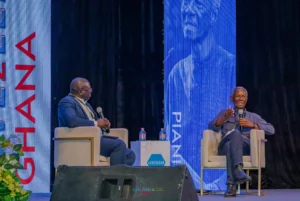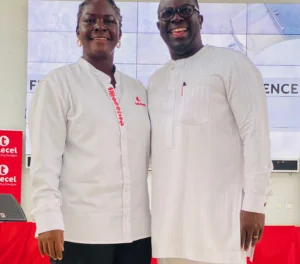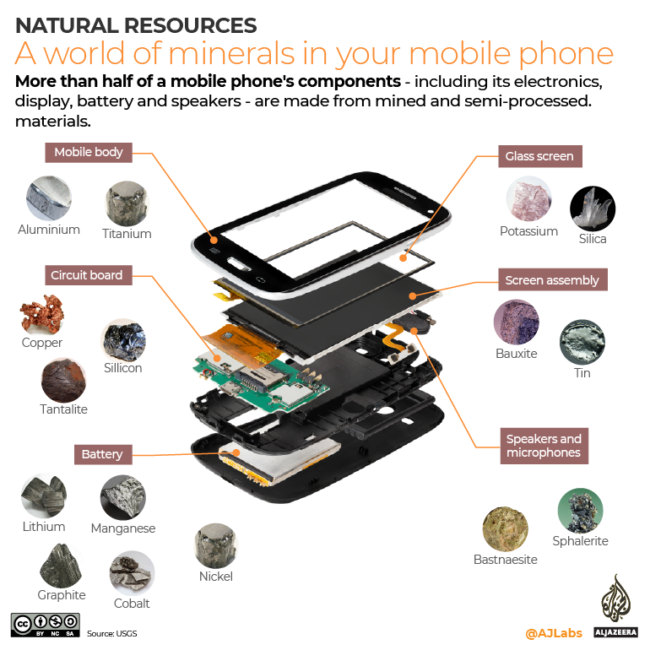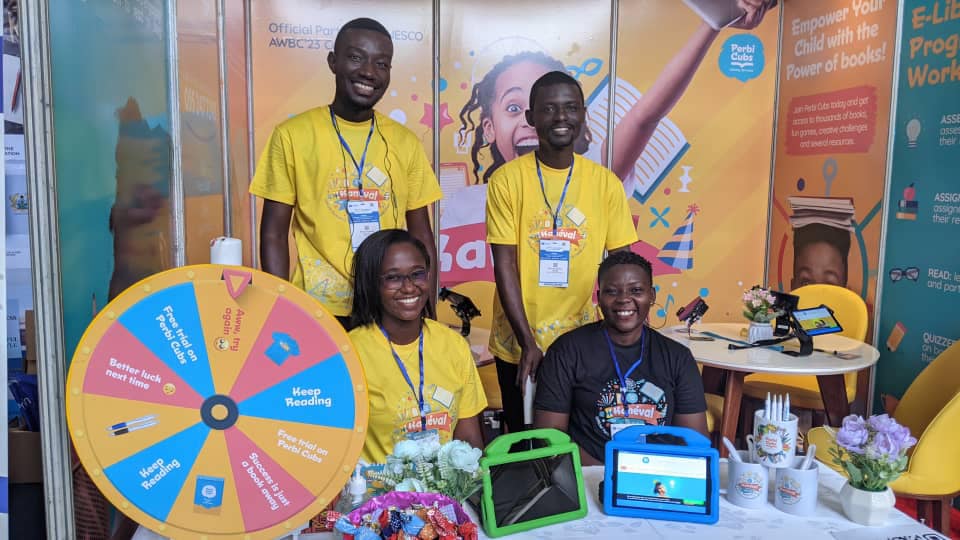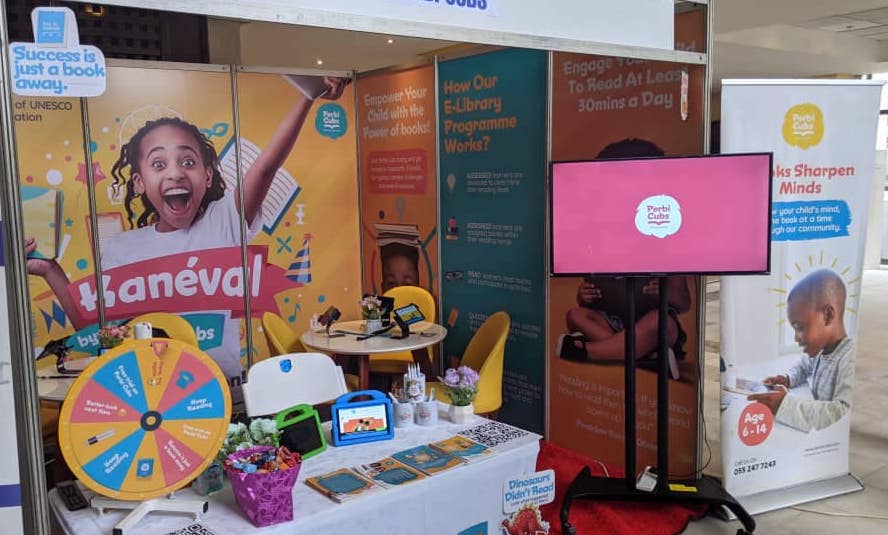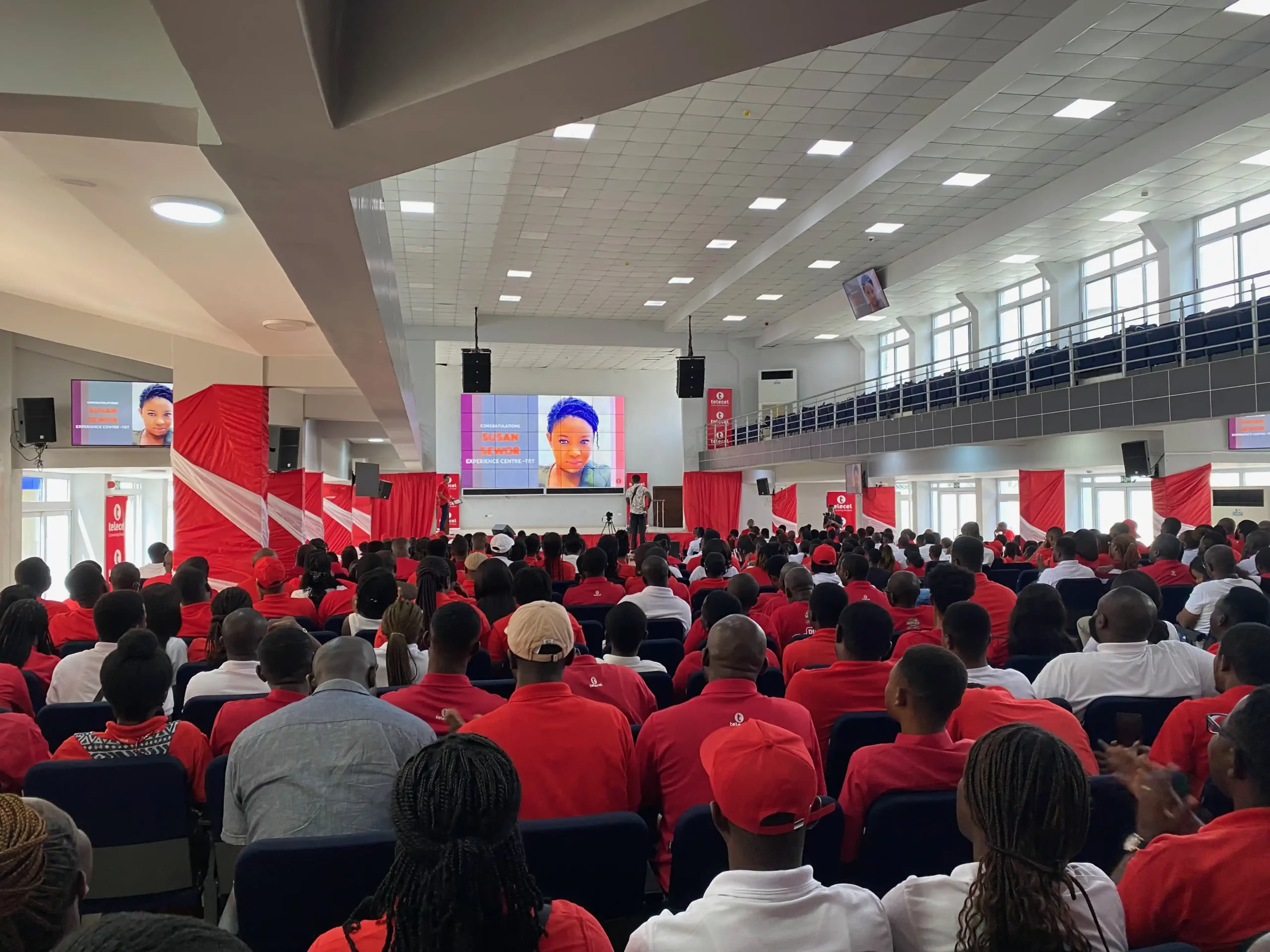
INTRAPRENEURS: THE ENTREPRENEURS WITHIN
INTRODUCTION
Telecel Ghana, formerly Vodafone Ghana, has an amazing annual practice of bringing together its 1,300-strong frontliners to appreciate them—not just with words but in awards—and ginger them up to do even better for their clientele. This Frontline Engagement Conference, as they call it, typically happens during the global Customer Service Week in October, which they’ve extended to the whole month to appreciate their customers.
This year, as the principal coach/speaker/trainer at Perbi Executive Leadership Education (PELÉ), Telecel extended to yours truly the humbling opportunity to address their army of frontliners and frontline support staff. Frontliners mean everything to any business! They are essential workers whose jobs depend on in-person interactions and often involve some form of risk, even if it’s verbal abuse. If this were soccer, frontliners would be our strikers! No scoring on this front, no bottomline success. Period. I was particularly impressed that the CEO of Telecel, Ing. Patricia Obo-Nai, prioritised this event such that not only was she in attendance from start to finish, she was fully present and participatory to the max.
This article aims to summarise the keynote I delivered on behalf of PELÉ entitled, “WANTED: INTRAPRENEURS!” This burning message to the rank and file of a top-tier provider of digital and telecommunications solutions across the African continent is one which, quite frankly, every company and organisation needs to hear.
FUNNY BUT NOT FUNNY
Several years ago, I had an appointment in downtown Accra but needed to pass through the bank to make a transaction first. I waited and waited and waited… and it was becoming evident that I might miss my appointment altogether. So, I got up and approached one of the bankers to express both my frustration and concern that I needed to make it for an appointment and here I was stuck in the bank.
Here was her response (I kid you not; and I remember as though it were yesterday): “Nti wonni time na w’aba bank no?” she said in Twi. To wit, “So you don’t have time and you came to the bank?” Needless to say, I was stupefied; or rather, mortified. If there ever was the opposite of a staff being intrapreneurial, it is that!
DEFINING INTRAPRENEUR(SHIP)
Everyone knows about entrepreneurs and entrepreneurship. But what in the world is an intrapreneur—and then intrapreneurship? To cover our bases, Investopedia defines an entrepreneur as “an individual who creates a new business, bearing most of the risks and enjoying most of the rewards. The process of setting up a business is known as entrepreneurship. The entrepreneur is commonly seen as an innovator, a source of new ideas, goods, services, and business/or procedures” (emphases mine).
With that at the back of our minds, the simplest definition of an intrapreneur would be an employee who behaves like an entrepreneur. Rather than going out to create a new business/organisation, they stay within it and use their innate entrepreneurial aptitudes and attitudes to significantly grow it. Gifford Pinchot III (1985) defined intrapreneurs as, “Dreamers who do. Those who take responsibility for creating an innovation of any kind within an organisation.” He is credited with inventing the concept of intrapreneurship in a paper that he and his wife, Elizabeth Pinchot, wrote in 1978 titled “Intra-Corporate Entrepreneurship.” Intrapreneurs then, are entrepreneurs within–within themselves and within their organisations/businesses.
DIGGING DEEPER
Intrapreneurs have an attitude and style that integrates Responsibility, Risk-taking, Ownership, Innovation (ROI). I like that these basic characteristics spell ROI, literally portraying how it’s entrepreneurs who bring a company its best Return on Investment (ROI). Roi, the French word for king, is also apt, for intrapreneurs are royalty in establishments, they are the kings and queens of any business. In 2014, Forbes declared that intrapreneurs are the most valuable employees from here on out. “Social intrapreneurs are quickly becoming the most valuable employees at many companies because they are good for the bottom line, good for the brand, and good for staff morale.” [1]
At the core of ROI is ownership, owning the opportunities and challenges at the workplace, assessing situations and taking responsibility (the R again) for one’s attitude, behaviour and outcomes. Here is where I challenge Management about ensuring they provide the legal and logistical framework—as well as whatever enabling environment—that empowers employees to take initiative and risk to innovatively solve problems boldly. A great example is the Ritz-Carlton hotel chain which has for many years given staff $2,000 of discretion to be used to solve any customer complaint in the manner the employee feels is appropriate. And this is daily! I recall hearing the author of The New Gold Standard: 5 Leadership Principles for Creating a Legendary Customer Experience Courtesy of The Ritz-Carlton Hotel Company tease out how this incentive works in practice and that the training is that if a customer/guest/client reports an issue to you, you own it 100% up to $2,000 worth, and until it is resolved, irrespective of your job description at the hotel chain. If as a gardener, you are approached with a television problem you intrapreneurially solve it, even if it means buying a new $1,000 television for the client. You don’t say, “Oh sorry, I’m just a gardener;” and you definitely do not go pointing fingers at your colleagues in another department, much less diss them. You own it!
REAL VALUE, REAL STORIES
Apparently, “Over 70% of transformative innovations are conceived, developed and commercialised by employees working within large companies. This finding stands in stark contrast to how contemporary society currently celebrates entrepreneurs as heroes.” [2] The most world-famous intrapreneur story must be that of Art Fry and how he made his company 3M billions of dollars by discovering a great use of a unique adhesive another 3M scientist had developed five years earlier but had found no practical use for it yet. That is a short version of the success story of Post-It Notes. [3] Did you know that the 3M company, with 2023 revenue of $33 billion, and with a recurring spot on the enviable Fortune 500 list, owed a great part of its success to intrapreneurship? Adhesive paper of all things, for a company originally named Minnesota Mining and Manufacturing (later 3M).
In Africa, the phenomenal success of FinTech, is another triumph of intrapreneurship. A couple of years before Momo (MTN’s version of Mobile Money) would take Ghana by storm, two middle managers from Vodafone and Safaricom in Kenya launched the mobile payment product from within their established companies in 2007. [4] Calling it M-Pesa, last year it boasted 51 million customers, with Kenya as its largest market, accounting for over 30 million users, many of whom previously did not have bank accounts. The service notably handled 26 billion transactions in the financial year ending March 31, 2023. SMEs in Kenya hugely depend on M-Pesa to receive payments from customers to the extent that in the last financial year to March 2023, more than 606,000 businesses were receiving payments through Lipa Na M-PESA. [5] That too, is a triumph of intrapreneurship.
[Mr. Kwame Pianim being interviewed by Dr. Yaw Perbi at Live2Lead Ghana on October 4, 2024]
I am in the throes of properly documenting the various contributions to nation building of the Ghanaian Economist and statesman Kwame Pianim, arguably the most unsung intrapreneur in Ghana’s history. Working within government circles and later in an investment company he co-founded, he re-engineered Ghana’s pension scheme to provide long-term investment capital and carefully christened it Social Security and National Insurance Trust (SSNIT) to calm touchy nerves. He also is the originator of the Teachers’ Fund (which but for the recent precipitous decline of the Ghanaian currency should be worth over a billion dollars now) and the SpinTex (spinning textiles) industrial company (now area), among others. Cheers to intrapreneurship!
A DIFFERENT WAY OF THINKING
It is the software (mindsets) that each employee runs that makes them produce different outputs: low performers, performers and high performers. Jason Jaggard, CEO of Novus Global, says “People at the different levels of performance tend to ask different types of questions of themselves.” [6] Low-performers ask the question, “What’s the least amount of work I can do and not get fired?” Performers ask themselves, “How can I do a good job?” These people don’t want to be horrible but they don’t want to be great either. High-performers ask the question, “How can I be the best?” But the best intrapreneurs actually go beyond high performance, they attain what Jaggard calls “Meta-performance” because instead of comparing themselves to others (to be best) they rather compare themselves to their potential and ask, “What am I capable of.” The best intrapreneurs are meta-performers!
At PELÉ trainings and keynotes, we motivate potential intrapreneurs to remember that they are already champions by virtue of being born, outwitting anything from 40 million to 1.2 billion sperms to take the prize, surviving nine months of pregnancy and bursting forth, some into very untoward circumstances. They outwitted the childhood killer diseases, survived school (even if they did not thrive) and have landed an enviable job at a place that is forward-looking enough to invite PELÉ to interface with them. People are born geniuses and winners; then see what nonsense life tells them and what wimps it makes them into! May no eagle die like a barnyard chicken because that is what they thought they were!
NO RISK, NO REWARD
In quite an elaborate manner, Jordan Daykin in Forbes describes intrapreneurs as, “A team of competitive, confident individuals who are committed to innovation, passionate about work and producing higher value for their employer [I would say stakeholders]. They will need to have an entrepreneurial spirit, be activators of ideas and have a willingness to take calculated risks. In return for their desire to help the growth of the company over financial reward, they will receive support and resources to help make their ideas a reality.” [7]
Daykin’s description gives the impression that there are no rewards for intrapreneurs per se apart from support and resources, but the rewards are many, even financial. At Telecel, for example, the whole Frontline Engagement Conference was a ‘speech and prize-giving day.’ From cash amounts to household equipment, staff were awarded for their dedicated intrapreneurship, connecting to clients with care. Besides, Telecel as a case study rewards intrapreneurs with citations, shopping vouchers, and Thank You publications on their internal platforms for all colleagues to see. According to the General Manager of Commercial Operations at Telecel Ghana who leads 1,000 staff, Mercy Dawn Akude, in addition to the above are quarterly and biannual award ceremonies for frontliners. “The Business now has the Most Valuable Player Awards which celebrates stories which go above and beyond quarterly recognitions, and not only for frontliners. This is new, and yet to be celebrated,” she adds. Even in the past, when Telecel was Vodafone, they celebrated local and global heroes with a focus on the customer. The global heroes were flown to the United Kingdom to be celebrated with other heroes.
General Manager of Commercial Operations at Telecel Ghana, Mercy Dawn Akude, with the Intrapreneurship keynote speaker, Dr. Yaw Perbi, at the Frontline Engagement Conference in Accra.
How about the societal impact and becoming a life of significance as a result? Whether Post-It Notes or M-PESA, the socioeconomic impact intrapreneurs make on communities, businesses and indeed the world cannot be overemphasised. But really, first of all, as an old saying goes, “if you do good, you do it for yourself.” It’s for an intrapreneur’s own good that they are fulfilling their potential, sharpening their skills, ramping up their reputation, and feeling accomplished. Besides, these are transferable benefits that inure to their person and can be used for their own enterprise somewhere else simultaneously or someday. How about being able to count on referrals and recommendations from one’s supervisors? Indeed, “if you do good, you do it for yourself.”
Besides, as long as the laws of the universe operate, others will treat you the same way you treat your employers and employment. And for people of faith, ultimately if you do good, you do it for yourself not only on earth but also for eternity; plus you do it for your God! Here’s what I mean: “For we must all appear before the judgement seat of Christ, so that each of us may receive what is due us for the things done while in the body, whether good or bad.” [8] In the same way, if you let your light shine as an intrapreneur, people “may see your good deeds and glorify your Father in heaven.” [9] There is an eternal reward for being a bad, good, better, best, meta intrapreneur.
CONCLUSION
If folks in companies and organisations would choose to be the best version of themselves, their combined compassion, competitiveness, confidence, commitment (not just involvement), plus great attitude, and responsible, risk-taking, and reward-deserving actions as entrepreneurial employees who take ownership and innovatively tackle opportunities and challenges will make them be the change they want to see where they work. And beyond. Desperately Wanted: Meta-performing Intrapreneurs!
References
[3] https://yawperbi.com/wanted-intrapreneurs/
[5] https://cioafrica.co/mpesa-experiences-outage/
[6] https://novus.global/can-you-go-beyond
-high-performance/
[7] https://www.forbes.com/sites/
jordandaykin/2019/
01/08/intrapreneurship/
[8] 2 Corinthians 5:10, NIV
[9] Matthew 5:16

Samsung and the Like: Can We Too Make Such and Not Just Use Them (and Show Them Off)?
During my first time in South Korea a few years ago, it immediately struck me that they use what they make. The hotel bus I got on from the Incheon airport in Seoul to my destination was a Hyundai (a South Korean product). The burly driver had strung beside him a Samsung phone (also South Korean made) for his operations. Samsung (founded in 1938), Hyundai (1947), SK (1953), and LG (1958) are just four big examples of the point I’m making.
Not just in Ghana but across several African countries I’ve experienced myself, so many people proudly drive Hyundais (even if they are second-hard imports) and brag about their latest Samsung releases year on year. There’s no shame that they are only consumers of what others sweat to produce. It doesn’t even cross their minds that real human beings make these things for themselves—and for export to fuel their bragging rights and feed their sensual pleasures.
Later this week (DV), I will have the joy of travelling to South Korea with two of my Ghanaian interns. They both will come along probably armed with Samsung phones they are very proud of. For both the male graduate intern in Kumasi and the young female undergrad intern based in Accra, my hope is that they will be first angered and then inspired by a country whose economic indicators were just about the same as their motherland’s sixty years ago but has since created a deep development gulf between the two.
At Saturday morning big breakfast in my own home in Accra, I asked my children how many things on our dining table were made in Ghana? It turned out that apart from the locally-manufactured table and eggs, everything else was made somewhere else in the world including the sausage! Ah!
South Korea’s top four conglomerates – Samsung, Hyundai Motor, LG and SK – represent nearly half of entire sales in the country. Hyundai Motor has some 170,000 employees on its payroll while LG has some 160,000. SK isn’t too far behind with about 110,000. Korean youth have jobs and use cars and phones from the jobs that hire them to make them. Ghanaian youth largely have phones they don’t make from money they don’t make because of jobs they don’t have.
Did you know Africa has more cell phones than people? Now find out how many of those people make cell phones! And by the way, Africa is replete with the stuff cell phones and home appliances are made of. Most of the electronics we use today are based on a number of minerals – from aluminium to zinc. More than half of a mobile phone’s components – including its electronics, display, battery and speakers (see photo above) – are made from mined and semi-processed materials. For example, Lithium and cobalt are some of the key metals used to produce batteries. In 2019, about 63 percent of the world’s cobalt production came from the Democratic Republic of the Congo. Tantalum is another metal used in electronic equipment. Tantalum capacitors are found in mobile phones, laptops and in a variety of automotive electronics. The DRC and Rwanda are the world’s largest producers of tantalum. Together they produce half of the world’s tantalum.
It’s time to wake up and smell the coffee! In Korea, Samsung is made and used by those who make it. In Ghana, Samsung is shown off and used by those who don’t make them. There is something more noble than showing off what you don’t make. This trip may be the best part of this internship for the fortunate two.
Our visit to Korea is not an industrialisation tour; it is to attend the Fourth Lausanne Congress on World Evangelization. With the worldview of living an integrated life, however, I hope these emerging leaders see a direct correlation between industry and generosity, the product of hard-smart work and the power to do good and share the good news. I pray Michael and Namawu will return to Ghana from Korea and instead of brandishing phones, coveting cars and showing of home appliances others make, rather ask themselves, “Where is what we proudly make that we can proudly use.” It’s time to use what we make and make what we use. And export some.
Photo credit: Pulse by Maeil Business News Korea
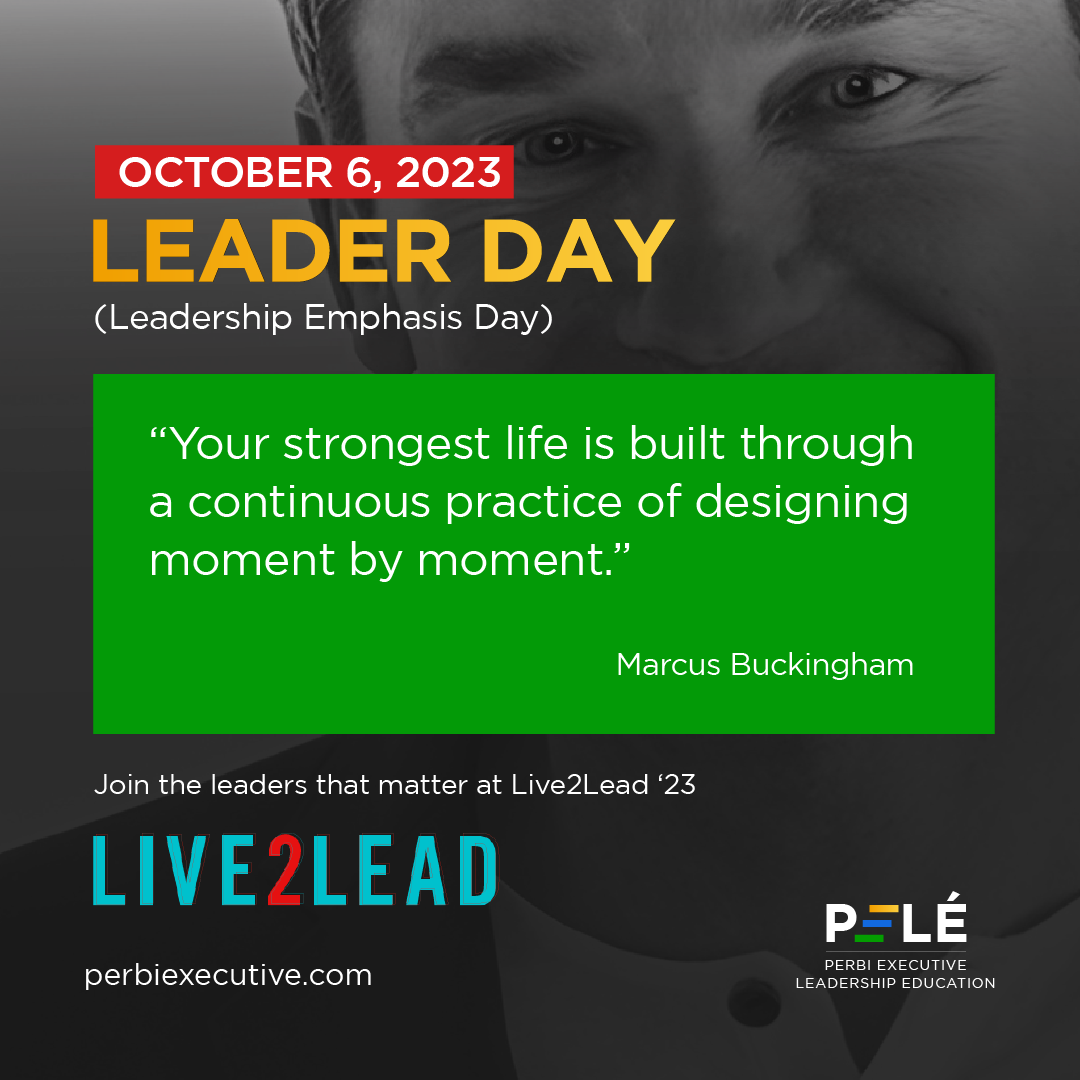
Meet Motivational Marcus Buckingham, Master of Strengths
British best-selling book-writer and arguably “the world’s most prominent researcher on strengths, leadership and high-performance at work,” Marcus Wilfrid Buckingham, is a remarkable individual. If you’ve ever heard of Strengthsfinder, or better still, taken the phenomenal assessment, behold the co-genius behind it! Renowned for his outstanding contributions to the world of work and the fields of technology, innovation, and philanthropy, Buckingham is a global researcher and New York Times best-selling author focused on unlocking strengths, increasing performance, and pioneering the future of how people work. He is the author of two of the best-selling business books of all time, First, Break All the Rules (1999), and Now, Discover Your Strengths (2001), and his tenth book, Love + Work (Harvard Business Review Press, 2022) is a Wall Street Journal bestseller and has been heralded by Forbes as one of the ten must-reads for career and leadership. Marcus’ 2019 Harvard Business Review (HBR) cover article, “The Feedback Fallacy,” was selected by HBR as one of the most influential articles of the last 100 years, and Marcus’ strengths assessments have been taken by over 10 million people worldwide.
Born 1966 in Buckinghamshire in Britain, Marcus displayed an innate curiosity and passion for technology from a young age. After completing his formal education at Cambridge in computer science, Marcus co-founded a startup in the late 1990s that revolutionized the way people interacted with online content. The company’s groundbreaking platform garnered widespread attention and accolades, propelling Marcus into the limelight as a visionary tech entrepreneur. Throughout his career, Marcus remained at the forefront of technological advancements, leading numerous successful ventures and launching groundbreaking products that transformed industries. His dedication to innovation and his ability to anticipate market trends earned him a reputation as one of the foremost technology pioneers of his time.
Beyond his professional accomplishments, Marcus Buckingham has always been deeply committed to making a positive impact on society. He is renowned for his philanthropic efforts, actively supporting various causes related to education, healthcare, and environmental sustainability. Marcus firmly believes in using his wealth and influence to drive positive change and has donated generously to charities and initiatives around the globe. In addition to his philanthropy, Marcus has been an advocate for promoting diversity and inclusivity within the tech industry.
In addition to the self-published short film series Trombone Player Wanted, Buckingham has made numerous television appearances on US television networks and cable channels including The View on ABC, I Want to Work for Diddy on VH1, The Oprah Winfrey Show on syndication, Good Morning America on ABC and The Jane Pauley Show. Marcus Wilfrid Buckingham the English research-based motivational speaker and business consultant is based in California, USA.
BUCKINGHAM LIVE AT MAXWELL’S LIVE2LEAD ANNUAL CONFERENCE 2023
Marcus Buckingham speaks at this year’s annual Live2Lead Ghana, a brainchild of Dr. John C. Maxwell. As Perbi Executive Leadership Education (PELE), we have been privileged to host Live2Lead on both sides of the Atlantic, in Montreal, Canada as well as in Accra, Ghana. We are absolutely convinced that leadership is taught; not just caught. Join John and the stellar faculty he’s put together for this year’s Live2Lead conference and up your leadership game.
This year, together with our partners in Ghana, we’ve chosen the theme, “Leading for Legacy.” Here’s a taste of Marcus Buckingham’s take on legacy: “Your strongest life is built through a continuous practice of designing moment by moment.” Legacy doesn’t just happen; it’s by intentional, intelligent design. Come and find out how, in-person at the Ecobank Ghana Headquarters in Accra, or online, wherever in the world you might be!
October 6 is Leader Day this year. Register now through this link. Impress upon your organization to join the Leadership Emphasis Day/Leader Day movement that will transform society by becoming a Patron of Live2Lead. A Patron company or individual is one that sends at least 10 leaders to Live2Lead. Together we can change our world for the better! Yes, we can!
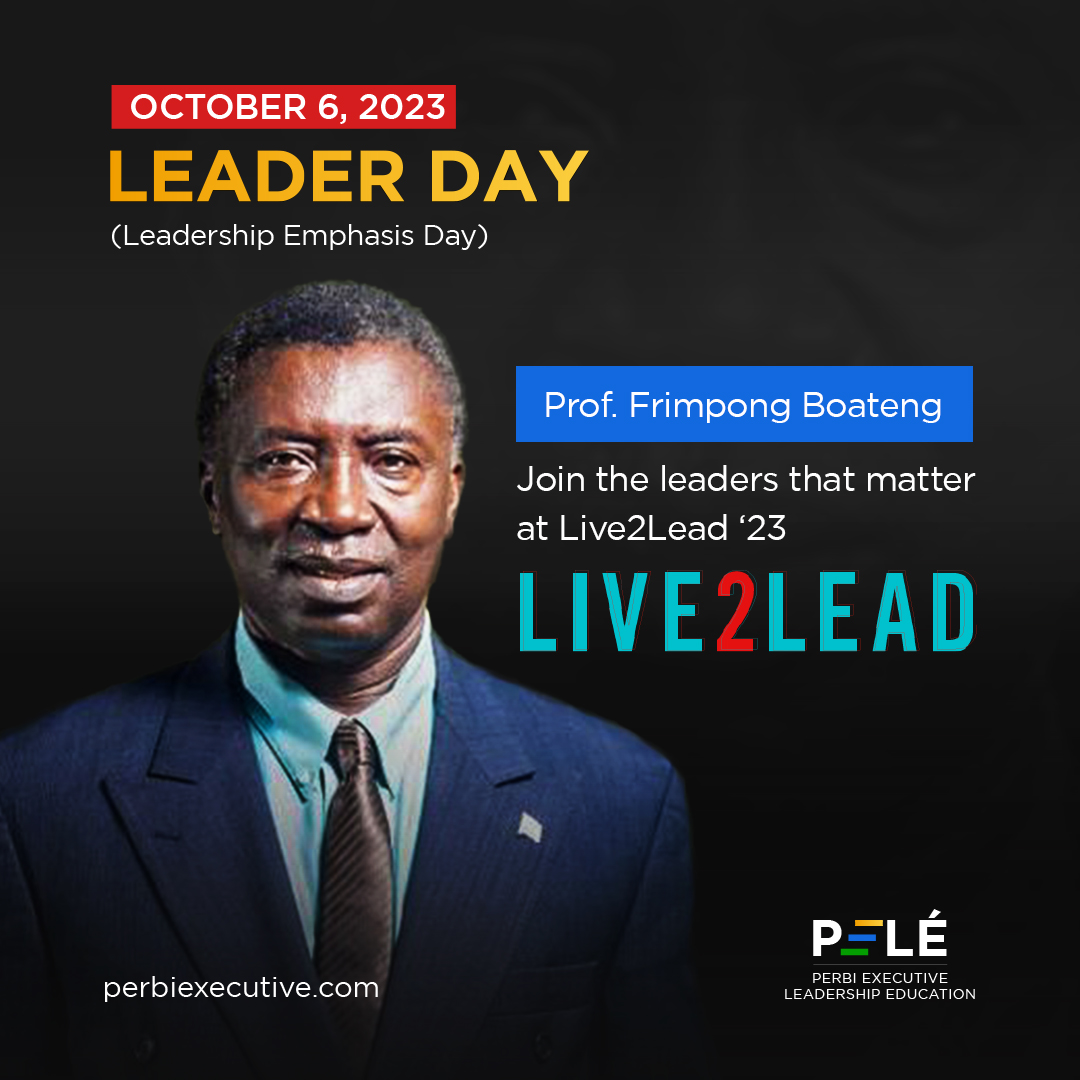
The Father of Open Heart Surgery Opens His Heart at Live2Lead 2023
Professor Kwabena Frimpong-Boateng is an astute German-trained Ghanaian cardiothoracic surgeon and founder of the National Cardiothoracic Centre whose recent foray into Ghanaian politics nearly marred his otherwise stellar legacy. He is also the Founder and President of the Ghana Heart Foundation, erstwhile Chief Executive Officer of Ghana’s premier teaching hospital (the Korle Bu Teaching Hospital, in Accra) and immediate past Minister of Environment, Science, Technology and Innovation for the Republic of Ghana (2017-2021). He has been a Fellow of the Ghana Academy of Arts and Sciences since December 2002.
A STRING OF FIRSTS
The best leaders lead from the power of their life stories, positive and otherwise. Even before Kwabena Frimpong-Boateng would be born, his father Kofi Frimpong died from chest/heart injuries sustained from a road traffic accident. Kwabena was barely four months from birth. It comes as no surprise then that although his first love was engineering, due to his affinity for physics and mathematics while he attended Sekondi College in the Western Region of Ghana, he later would later go the doctor route at university. As if destiny was calling, after the University of Ghana Medical School and housemanship, he was offered a scholarship to study general, cardiothoracic and vascular surgery in Germany. As Frimpong-Boateng figured he could help people with heart situations like his late father, he took the opportunity to sharpen his craft and deepen his calling at the Hannover Medical University in Hannover.
So forty years ago, in 1983, Kwabena Frimpong-Boateng and his team of professors did their first heart transplant on a human being and then performed his first transplant as the lead surgeon in October 1985. This made him the first Black doctor to perform a heart transplant, earning him the nickname the “Black Pearl.”
At the time, he was recognized worldwide for this feat and as if that was not enough, in November 1988, three years later, he struck another first: the first heart-lung transplantation in Hannover. After finishing his post-graduate studies, despite being in very high demand in Europe, he chose to return to the land of his birth to practise as Ghana’s first locally based cardiothoracic surgeon. Frimpong-Boateng performed the first open-heart surgery in Ghana using the heart-lung-machine.
Even away from the hospital, as a farmer Frimpong-Boateng established the first ostrich farm in Ghana, in the village of Dedukope, in the Volta Region of Ghana.
SPEAKING OF LEGACY
Translating his personal success into societal significance, in 1989 he set up the National Cardiothoracic Centre at the Korle Bu Teaching Hospital and was commissioned in 1992. There were no cardiothoracic surgery facilities in the country at the time and this was really avant garde for a country still struggling with primary health care issues such as mosquito-bourne Malaria and childhood vaccinations. Today, people head to the centre from all over the continent for cardiothoracic attention and is now recognised by the West African College of Surgeons to train heart surgeons, cardiologists, cardiac anaesthetists, operating room nurses, intensive care nurses, cardiac technicians, and other cardiothoracic technicians. As a practicing Christian, he has said that his work on the foundation of the National Cardiothoracic Centre was God’s purpose in his life.
One of the greatest way to pass on legacy is by teaching others. Frimpong-Boateng joined the University of Ghana Medical School as a lecturer in 2000 and was promoted associate professor the same year. He was made a full professor in 2002. He also served as the head of the Department of Surgery at the University of Ghana Medical School, prior to his appointment as the Chief Executive of the Korle-Bu Teaching Hospital in 2002. The Ghana Heart Foundation, which he also founded, raises funds to pay for heart surgery for some indigent Ghanaians who cannot afford the cost of such specialized surgery.
Again, he has done well, in terms of passing on legacy, by authoring a couple of biographical books, Deep Down my Heart: A History of Cardiothoracic Surgery in Ghana and Taming the Monster, a treatise on managing Ghana’s behemothic premier teaching hospital.
In March 2006, Prof. Frimpong-Boateng unsuccessfully sought nomination as the candidate of the New Patriotic Party (NPP) for the December 2008 national presidential elections. Regardless of his results, he declared he was still concerned with political issues in relation to education and health problems and would later become a Minister of State. Yet he regrets that political corruption in Ghana is too much and opines that politicians are not taking social priorities into account, especially the need for technology. His foray into the deep and often turbulent waters of politics, especially as chairman of the inter-ministerial committee on illegal mining in the country, nearly marred his enviable legacy of pioneering and impactful lifework. In a recent interview with the Africa Watch magazine, he boldly declared, “Impunity rules in Ghana.”
The erudite professor has had several local and international awards over the last four decades, including two honorary doctorates. Frimpong-Boateng and his wife, Agnes, have five children, some of whom are doctors also.
PROF. FRIMPONG-BOATENG AT JOHN MAXWELL’S LIVE2LEAD ANNUAL CONFERENCE 2023
The good professor speaks at this year’s annual live2lead Ghana, a brainchild of Dr. John C. Maxwell. As Perbi Executive Leadership Education (PELE), we have been privileged to host Live2Lead on both sides of the Atlantic, in Montreal, Canada as well as in Accra, Ghana. We are absolutely convinced that leadership is taught; not just caught. Join John and the stellar faculty he’s put together for this year’s Live2Lead conference and up your leadership game.
This year, together with our partners in Ghana, we’ve chosen the theme, “Leading for Legacy.” Speaking of legacy, in the said interview with the Africa Watch magazine, Prof. Frimpong-Boateng said, “Life is not all about fame and money, but more importantly, what one can do to help others.” He also recently wrote An Open Letter to Anybody Who Wants to be President of Ghana in 2025. Among other things, words that bordered along legacy were the following: “…the success of true leadership is measured by what extent the people can be mobilized to lead independent lives: to feed, shelter, clothe, heal, and defend themselves, and also produce tools, implements, spare parts and machines they require for daily living, so that if for one reason or the other ships and airplanes are unable to access the country the citizens can stand on their own and survive.” Come and find out how to truly lead successfully, in-person at the Ecobank Ghana Headquarters in Accra, or online, wherever in the world you might be!
October 6 is Leader Day this year. Register now through this link. Impress upon your organization to join the Leadership Emphasis Day/Leader Day movement that will transform society by becoming a Patron of Live2Lead. A Patron company or individual is one that sends at least 10 leaders to Live2Lead. Together we can change our world for the better! Yes we can!
Register HERE, NOW.
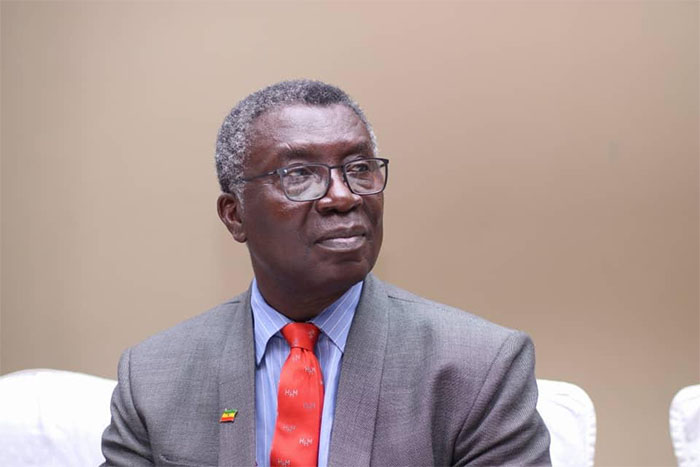
Open Letter to Anybody Who Wants to be President of Ghana in January 2025 by Prof. Kwabena Frimpong-Boateng
Ghana has not done as well as it should have done since President Kwame Nkrumah was unconstitutionally ousted from office through a military coup by the National Liberation Council on February 24, 1966. Ghana has had three other interruptions of governments. The present 4th Republic, dominated by the National Democratic Congress (NDC) and the New Patriotic Party (NPP), has not brought the transformational change that will put the country on path of sustainable development and prosperity for its people.
I dare say that the fight ahead of Ghana is greater than the fight for political independence and its people cannot be won with leaders who lack the zeal, commitment, conviction to confront their own demons and other forces and headwinds that are against the development of the country.
It is always said that one cannot re-invent the wheel and I believe in that old adage. I present here examples of what happened elsewhere on this planet not too long ago. I personally believe that the country can make progress when we get leaders who exhibit the qualities in the examples that follow.
The first example of transformational leadership is from Singapore. When the government of Lee Kuan Yew took office in 1959 it set out to have a clean administration. The Prime Minister said that “we were sickened by the greed, corruption, and decadence of many Asian leaders” and “We had the deep sense of mission to establish a clean and effective government”. This was a solid commitment from the newly elected Prime Minister. With determination and a credible program committed to scientific and technological development, Lee Kuan Yew and his team were able to live up to their good intentions and Singapore, which in 1819 was a village with 120 fishermen without natural resources and hinterland, propelled itself from third world squalor to first world affluence in just 35 years. This was commitment and a sense of mission personified.
The second example is from China. The economic development taking place in China is the result of an initiative taken by four scientists. On the 3rd of March 1986, four of China’s top weapons scientists: WANG Daheng, WANG Ganchang, YANG Jiachi, and CHEN Fangyun, jointly sent a private letter to Deng Xiaoping, the leader of the country, with a warning that decades of relentless
focus on militarization had crippled the country’s civilian scientific establishment. They recommended that China must join the world’s “new technological revolution,” or it would be left behind. They called for an élite project devoted to technology ranging from biotech to space research. Mr. Deng Xiaoping agreed, and scribbled on the letter, “Action must be taken on this now.” This was China’s “Sputnik moment,” and the project was code-named the 863 Program, for the year and month of its birth. In the years that followed, the government pumped billions of dollars into labs and universities and enterprises, on projects ranging from cloning to underwater robots. The program initially focused on seven key technological fields: Biotechnology, Space technology, Information technology, Laser technology, Automation, Energy, and Advanced Material Sciences.
Two more fields were brought under the umbrella of the program: Telecommunications (1992) and Marine Technology (1996).
In 2006, Chinese leaders redoubled their commitment to new energy technology; they boosted funding for research and set targets for installing wind turbines, solar panels, hydroelectric dams, and other renewable sources of energy that were higher than goals in the United States. China doubled its wind-power capacity that year, and then doubled it again the next year, and the year
after. The country had virtually no solar industry in 2003; five years later, it was manufacturing more solar cells than any other country, winning customers from foreign companies that had invented the technology in the first place.
Korea transformed itself from a stagnant agrarian society into one of the most dynamic industrial economies of the world within 40 years. In the early 1960s when Korea first launched its industrialization efforts, it was a typical poor developing country with poor resources and production base and small domestic market. Korea’s Gross National Product (GNP) in 1961 was only $ 2.3 billion (in 1980 prices) or $87 per capita which came mainly from the primary sectors. The manufacturing sector’s share of GNP remained at a mere 15%. International trade was also at a very infant stage: in 1961, Korea’s export volume was only $55 million and imports $390 million. As late as 1970, the three top exports were textiles, plywood, and wigs. South Korea now has established world prominence in such technology areas as semi-conductors, Liquid Crystal Display (LCD), telecommunication equipment, automobiles, shipbuilding, and many more. Indeed, it has emerged as one of the key international players in the global economy and is considered the 13th largest economy and one of the major trading countries of the world.
The last example is from the United States of America. When the 56 signatories of the Declaration of American Independence met in the State House of Pennsylvania in Philadelphia on the 4th of July 1776 to append their signatures to the famous document on declaration of America’s Independence this is what they said: “And for the support of this Declaration, with a firm reliance on the protection of divine Providence, we mutually pledge to each other our Lives, our Fortunes and our sacred Honor”.
The signers of American Declaration of Independence, twenty-three lawyers, fifteen merchants, five plantation owners, four physicians, three scientists, two land speculators, one farmer, one military man, one lawyer/musician and one Minister, showed tremendous courage and bravery by willingly putting their names on that document. They knew full well that they were committing treason against England and they knew the penalty was death. Their commitment to the United States of America led to the creation of what is still the richest and most powerful country in the world. Ghana has not yet seen the type of closed, united, committed, focused, and dedicated leadership that is ready to sacrifice for future generations of Ghanaians. We have not had leaders who see beyond the next elections and plan for future generations. If a few leaders of this country, relying on the protection of divine providence, would mutually pledge their lives, fortunes, and sacred honor for the development of Ghana, there would be a palpable change within 2 years. May be there is no sacred honor or fortune to pledge on.
The political corruption that is gradually gaining root in Ghana is very disturbing. When it comes to choosing leaders to run the political parties and the nation it is no more a question of looking for selfless and competent individuals who have what it takes to move the nation forward. It is more of who is loyal to powerful individuals who want their interests to be served after the power
is won.
I expect anyone who wants to lead this country to tell the nation now how things are going to be done differently so that young people would begin to have hope and stake in this country.
Our leaders have devalued themselves to the extent that they think only foreigners can help us out of our misery. How can someone tell us that he is waiting for a loan from some other countries before roads, schools and other infrastructural projects can be executed?
Our leaders seem to know it all and can develop this country without Ghanaians. After all they do not need Ghanaians to travel around looking for loans, grants, and handouts. They do not need Ghanaians to build the infrastructural projects. As it is, those who give out the loans also provide the highly qualified and skillful workers from their country to get the work done.
Our leaders’ understanding of development seem to be only the provision of infrastructure. No country ever developed by borrowing to build infrastructure. ‘Something’ else must be built on the infrastructure. That something is the true development.
As far as I am concerned the many roads, interchanges, schools, hospitals, wells, electricity, and other infrastructural projects, erroneously called development projects, do not alone determine the success of a Government. Rather the success of true leadership is measured by what extent the people can be mobilized to lead independent lives: to feed, shelter, clothe, heal, and defend themselves, and also produce tools, implements, spare parts and machines they require for daily living, so that if for one reason or the other ships and airplanes are unable to access the country the citizens can stand on their own and survive.
We need attitudinal change. We should realize that the overall development of the nation, including the economic, social, cultural, and technological development is the responsibility of the Ghanaian. Mr. Future President, the men, and women to solve the myriads of problems facing us are here at home and in the diaspora. They have to be found and encouraged to perform. The task of political
leadership is to unearth the actors needed to transform the nation. If we say we have the men, let us use the men and not the boys.
We should exorcise the ‘beggar mentality’ from our lives and accept that our poverty is self-inflicted and it is absolutely unnecessary.
We pride ourselves as having been endowed with abundant natural resources. That is true but it is also important to know that natural resources have no natural owners. The real owners are those that have the technology, skills, and the financial power to exploit those resources. They are the ones that take 90% of the mineral and other resources and leave a mere 10% for the host country.
It really beats my understanding that our leaders do not seem to realize that the real difference between the developed countries of America, Europe, Asia and the Far East and the underdeveloped countries of Africa lies in their technological capability. This capability has been defined as the extent to which countries access, utilize, and create science and technology for the solution of socio – economic problems. Technology has the track record of solving developmental problems. Our modern world is driven by technology. Energy, agriculture, medicine and health, clean air and water, transportation, sanitation, management, utilization, and conservation of natural resources — all are based ultimately in science and technology. So, it is obvious that to be a part of that world, there must be science and technology elements in the development process.
Despite efforts to alleviate poverty, Ghana still exhibits chronic inability to alleviate poverty. Poverty alleviation means, for many people, being able to afford nutritious food, access to clean water and sanitation, energy, safe shelter, education, and a healthy environment. Since science and technology have a historical record in providing solutions to poverty problems, any efforts to alleviate poverty will not succeed without innovations in food production, water, energy, and health provision and in general economic growth. We must understand that Science, Engineering and Technology will give us the capacity to manufacture machines, develop processes and materials and exploit our abundant natural resources for national development. If we do not develop the capacity to manufacture machines that will work for us, we should as well forget about any dream of developing the Nation. No country ever developed without the capacity to manufacture machines. If we characterize Ghana as an agricultural nation, we do so by default because we cannot do anything else. We will continue to run the Adam and Eve, Cain, and Abel economy: planting yams and rearing animals. We have not advanced to Noah’s economy. He built a sophisticated ship that saved humanity and other forms of life. About 2200 years ago, the Chinese built the over 6300km Great Wall of China, without any assistance from the World Bank but we in the 21st Century have closed our minds to technology and need assistance to construct everything, including toilets. We need to constantly remind ourselves that the POVERTY GAP is a TECHNOLOGY GAP.
Again, our development should be driven by our ability to understand, interpret, select, adapt, use, transmit, diffuse, produce, and commercialize scientific and technological knowledge in ways appropriate to our culture, aspirations, and level of development.
Ghana needs a new brand of leadership. It is unacceptable that about 80% of inputs into agriculture, education and health are from foreign sources. It is a shame that a major thrust of our economic policy is to try as much as we can to attract foreign investors. Good as foreign investments are we just cannot sit down and think that without confronting our problems ourselves we can still be prosperous.
To my mind Ghana is unable to attract significant Foreign Direct Investments (FDI). Any country that does not take the development of her human capital seriously finds is difficult to attract Foreign Direct Investments (FDI). The high-income developed countries with well-developed human capital are not only the major source of direct investment, but they are also the major recipients. China and the United States of America are the major recipients of FDIs in the world.
There is ample evidence that multinationals are more active primarily between similar, high-income countries and that outward direct investment in particular is associated with skilled-labor abundance. Even when a multinational decides to invest in a developing country with low human capital base the type of investment is the vertical one in which the production process is geographically fragmented by stages, the capital-intensive intermediates being produced in the home country of the multinational and the labor-intensive stage produced in the host country. This is in contrast to the horizontal investments in which the multinational carries on basically the same activity in the host country as at home, for example, German investors producing the same cars in the United States of America as they do in Germany. This type of investment is almost non-existent in Ghana.
Finally Mr. Future President, I believe that the greatest asset of a nation is the trust and confidence of its people. This should, however, not be taken for granted. Leadership must also fight for this great asset by working hard with even-handedness for the people in all honesty. This asset has been and still is being squandered through misgovernment and corruption to the extent that leaders are not trusted and citizens do not see that they have a stake in their country and its future.
Most Ghanaians do not see any virtue in working for the future of their country. Our leaders have not been able to invoke in the citizens the spirit of nation building. Mr. Future President how are you going to rectify this situation?
God bless our homeland Ghana and make our nation great and strong.
A PELE Note
Prof. Kwabena Frimpong-Boateng is an astute German-trained Ghanaian cardiothoracic surgeon and founder of the National Cardiothoracic Centre whose recent foray into Ghanaian politics nearly marred his otherwise stellar legacy. This Open Letter was written by the good professor on 31st August, 2023. Perbi Executive Leadership Education (PELE) contacted him for his original typed up version on September 20, 2023 to republish here in toto, unedited whatsoever. He is scheduled to speak in-person at the John Maxwell Live2Lead Conference in Ghana on Friday October 6, dubbed Leader Day.

Confluence for Influence: Kanéval by Perbi Cubs Leverages UNESCO’s Accra World Book Capital 2023.
Exciting news! Perbi Cubs Library Services is teaming up with the United Nations Educational, Scientific and Cultural Organization (UNESCO) and the Ghana Book Development Council, among others, to celebrate Accra World Book Capital (AWBC ’23) as official partners. Accra, the capital city of Ghana, in West Africa, is the 23rd city in the world, and only the fourth in Africa, to have the honour of this title which UNESCO initiated in 2001 to promote literacy globally. This is akin to a literacy World Cup title, only it is bestowed annually.
The World Book Capital is an initiative of UNESCO which recognizes cities for promoting books and fostering reading for a year, starting on April 23, World Book and Copyright Day. UNESCO adopted the 31 C/Resolution 29, in 2001, establishing the World Book Capital (WBC) programme. Cities designated as UNESCO World Book Capital pledge to carry out activities with the aim of encouraging a culture of reading and diffusing the values of literacy, lifelong learning, copyright, and freedom of expression in all ages and population groups, both within and beyond national borders. The first city to be awarded was Spain in 2001 and Accra’s turn is sandwiched between Guadalajara, Mexico (2022) and Strasbourg, France (2024).
The UNESCO World Book Capital Advisory Committee, which evaluates bids to win the title, comprises representatives of the International Publishers Association (IPA), the International Federation of Library Associations (IFLA), the International Authors Forum (IAF) and UNESCO. Past capitals include Madrid (2001), Alexandria (2002), New Delhi (2003), Anvers (2004), Montreal (2005), Turin (2006), Bogota (2007), Amsterdam (2008), Beirut (2009), Ljubljana (2010), Buenos Aires (2011), Erevan (2012), Bangkok (2013), Port Harcourt (2014), Incheon (2015), Wroclaw (2016), Conakry (2017), Athens (2018), Sharjah, (2019), Kuala Lumpur (2020) and Tbilisi (2021).
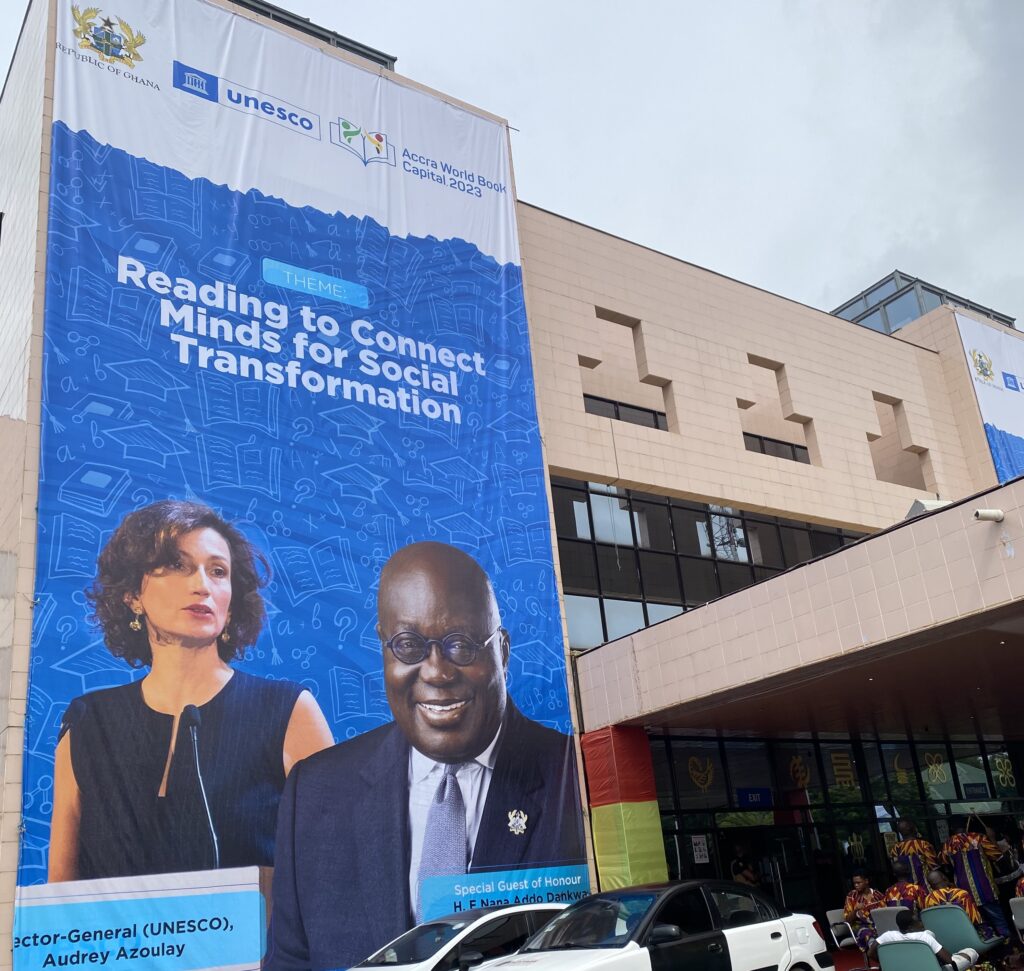
The grand opening ceremony of Accra World Book Capital at the Accra International Centre by the President of the Republic of Ghana
THE GHANA JOURNEY
Accra’s first attempt to win the 2019 World Book Capital title, after the idea was mooted in 2016 and working towards that, failed. Accra relaunched the bid in April 2021 and won it. The executive board of UNESCO, at its 215th session in Paris, France, on September 22, 2021, named Accra the World Book Capital 2023, following evaluation by the World Book Capital Advisory Committee. This was no mean achievement for the ten-member bidding team representing the Accra Metropolitan Assembly, Ghana Commission for UNESCO, Ghana Library Association, Ghana Publishers Association, Complementary Education Agency (formerly Non-Formal Education Division), Ghana Association of Writers, and the Ministry of Foreign Affairs and Regional Integration and chaired by Mrs Ernesticia Lartey Asuinura, the Executive Director of the Ghana Book Development Council (GBDC). Several internal staff of GBDC were behind this successful bid and must be applauded.
According to UNESCO, “the city of Accra was selected for its strong focus on young people and their potential to contribute to the culture and wealth of Ghana. Accra’s proposed programme seeks to use the power of books to engage these young people, as an effective way of skilling up the next generation.” Earlier this year, on April 11, the Minister of Education of Ghana, Dr. Yaw Adutwum, held a press launch of AWBC’23 at which Perbi Cubs was represented by the Founder and CEO, Mrs. Anyele Perbi. He explained that Accra was selected ahead of other cities because the Education Ministry’s programmatic focus was on young people and their ability to contribute to the culture and wealth of Ghana through the power of reading. “Research shows that reading improves the learning outcomes of students in schools,’ said the Minister. “That’s why in certain schools around the world, they’ve implemented and employed the ‘Drop Everything And Read’ – ‘DEAR’. So if it’s 15 minutes, 20 minutes a day, children are made to stop everything and read,” he illustrated.
Dr. Yaw Perbi, Global CEO of The HuD Group and Co-Founder of Perbi Cubs, and Mrs. Anyele Perbi , Founder and CEO of Perbi Cubs, were invited and did attend the grand opening of AWBC ’23 by the President of the Republic of Ghana, Nana Addo Dankwa Akufo-Addo, and the Director-General of UNESCO, Madam Audrey Azoulay Ayoub, at the Accra International Conference Centre. The theme for the occasion was ‘Reading to connect minds for Social Transformation’. It was encouraging interacting with school children as well as top academics at the Perbi Cubs booth, including members of the Ghana Academy of Arts and Sciences. Visiting the exhibition booths of other players in the literacy space was also invigorating but nothing beat the joy of seeing the attending school children flock to the Perbi Cubs stand to sample for a few minutes the thousands of books on their online platform.
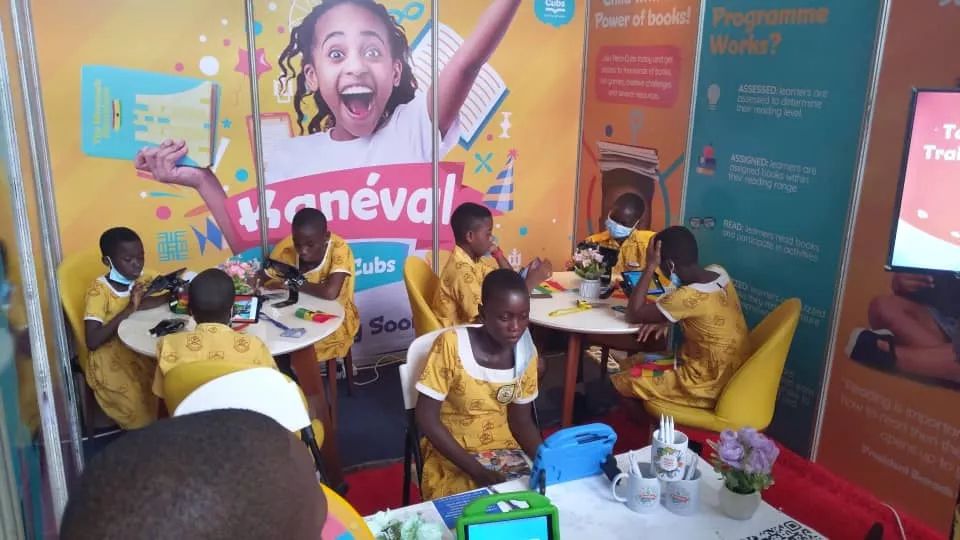
Several groups of school children practicalized the whole point of AWBC by doing actual reading at the launch
Under the theme ‘Reading to connect minds for social transformation’ the programmes planned for the title year will focus on particularly the youth and vulnerable groups in Accra (and Ghana at large) such as children, underemployed women, head-porters (kayayei) and persons living with disability, to equip them with literacy and employable skills, while promoting the rich Ghanaian cultural heritage and the book industry in Ghana.
THE PERBI JOURNEY
Both Yaw and Anyele Perbi (née Ampa-Sowa) come from homes full of books. In fact, they got to know each other as children of professors at the University of Ghana campus. Anyele’s dad was an Economics lecturer and Yaw’s mum, a history lecturer. In their growing up years Yaw’s own dad, being a long-time member of the board of Challenge Bookshop, would receive loads of books every year, feeding their home library fat.
Tracing the history of books even further, Yaw’s maternal grandfather was not only an author and professor of African Studies and Ethnomusicology at the same university, but also together with writer and educator Dr. Efua Sutherland organized the first international book fair in Ghana in the early 1970s and proceeded to come together to found Afram Publications a couple of years later, incorporating it in February 1973. Emeritus Professor J.H. Kwabena Nketia was his name.
The Perbi household buzzed with books and moments like when the floating bookshops, the MV Doulos or Logos ships, would berth at the Tema Harbour were fun galore. Meanwhile, Yaw did not like reading as much as Anyele in their early years on the Legon campus. Anyele LOVED reading to the point that the rate of buying books for her and her two brothers was threatening to bankrupt her parents. When she was missing from the house you could be sure she was immersed in a book somewhere!
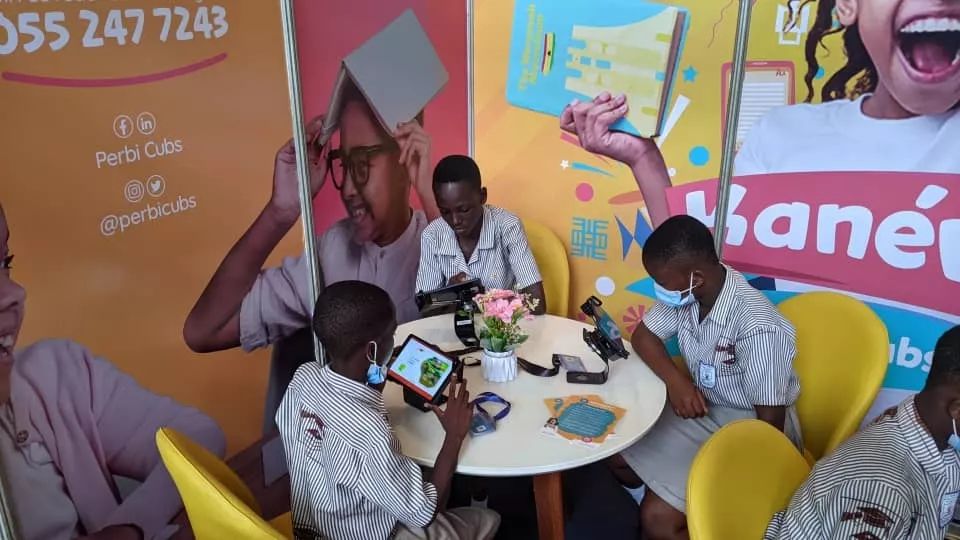
At the intersection of age old reading and new technologies stands Perbi Cubs’ online digital reading platform and offerings
Two jerking statements changed Yaw’s attitude towards books. The first was, “If you want to hide something from a Black people, put it in the book.” You may read the full story here. Fascinatingly, by the age of twenty-three, Yaw would write and publish his first book, What Every Fresher Should Know about University, and as an internationally-recognized author of some twenty books and several book chapters, journal articles etc. now, as they say, the rest is history. Today, one of his punchy books called Read! is subtitled: “You are ‘illiterate’ if you can read but don’t.” Dr. Perbi’s 2015 Thinking Outside the Window was even an Amazon bestseller in its category. His latest book, co-authored with a Kenyan and published in March 2023, is entitled Africa to the Rest. In it, Yaw stresses the need for Africans not only to read but also to write. “Until the lion learns to write,” he reminds us, quoting an old African wise saying, “every tale of the hunt will glorify the hunter.”
When Yaw founded The HuD Group in 2003, one of its first divisions was a library called The Mine (it still runs at the Staff Village of the University of Ghana). So for at least two decades now, Dr. Perbi has been a fierce reading campaigner. And now in tandem with the erudite Anyele, he likes to say “my wife and I have stepped up by stepping down.” What he means by that is, they’ve enhanced their reading campaign (stepped up) but decided to go further down to the age where humans are most pliable: childhood (stepping down). And they began with their our own seven children in the French city of Montreal, Canada which happens to have been the UNESCO World Book Capital in 2005, four years before they would dwell there as a family for the next dozen years. Their own children’s love for reading, the generous 40 books per person supply of the Pierrefonds municipal library across the street from their West Island home and an imminent eight-month visit to Ghana that threatened to stifle this Perbi reading culture combined to birth the Perbi Cubs Library Services. You may find the story and philosophy behind Perbi Cubs here.
AND NOW, KANÉVAL
According to Perbi Cubs CEO, “We are excited to inform you that Perbi Cubs, in partnership with UNESCO Accra World Book Capital 2023, will be organizing a fantastic year-long program. Watch out for Kanéval as it moves round throughout the year, to your school or community. Stay tuned on the various Perbi Cubs social media handles like Facebook, Twitter, LinkedIn and Instagram for more updates.” Kanéval by Perbi Cubs, a season of fun, inspiration, and BOOKS, is launching in Accra on May 11, 2023.
As long as reading remains a chore, we’ll have a problem promoting it. But who doesn’t love a good festival, a carnival? What if we could think outside the box and bring together the idea of a traveling amusement show with merrymaking sideshows, rides, etc. with reading? What if face-painting or getting on a swing was a reward for reading a book? These are some of the disruptive ideas that incubated and eventually hatched Kanéval. The idea of Perbi Cubs in general and KANÉVAL in particular, is to bring FUN to reading while strongly brandishing the connection between reading and success in life.
In the spirit of innovation and creativity, Perbi Cubs values, the coined word Kanéval was inspired by the word for read in Ga, the language of the Accra people, Kané. So combining ‘Kané’ with the English word ‘carnival,’ here we are! There will be lots of fun, reading and other educational activities. Perbi Cubs is grateful to several Ghanaian influencers like Nana Aba Anamoah (media personality and General Manager of GHOne TV and Starr FM), Bernard Avle (Citi Breakfast Show host and General Manager of Citi FM), Kafui Dei (author, speaker and GTV Breakfast host), Portia Gabor (TV3 hostess and Ghana Journalist Association’s reigning Journalist of the Year), Gwen Addo (entrepreneur, author and CEO, The Hair Senta), Giovani Caleb (media personality, radio and TV), Gifty Anti (author, media personality, celebrated journalist) and others who are synergizing with them to take the culture of reading to the next level to transform the fortunes of Ghana and Africa.
Perbi Cubs’ Kanéval is scheduled to take off on 11th May, 2023 at Alpha Beta Education Centres and then to all their partner schools and other communities, particularly deprived ones badly needing a literacy intervention. Kanéval is not just for our Cubs but all our stakeholders including you. There are many activities you can join in with exciting prizes. Kanéval awaits you for a Kanévalistic experience. Kanéval – Reading is fun!!! The amazing part is that in collaboration with various partners, Perbi Cubs is offering huge discounts on their subscriptions so that every Cub in their partner schools can read this year!
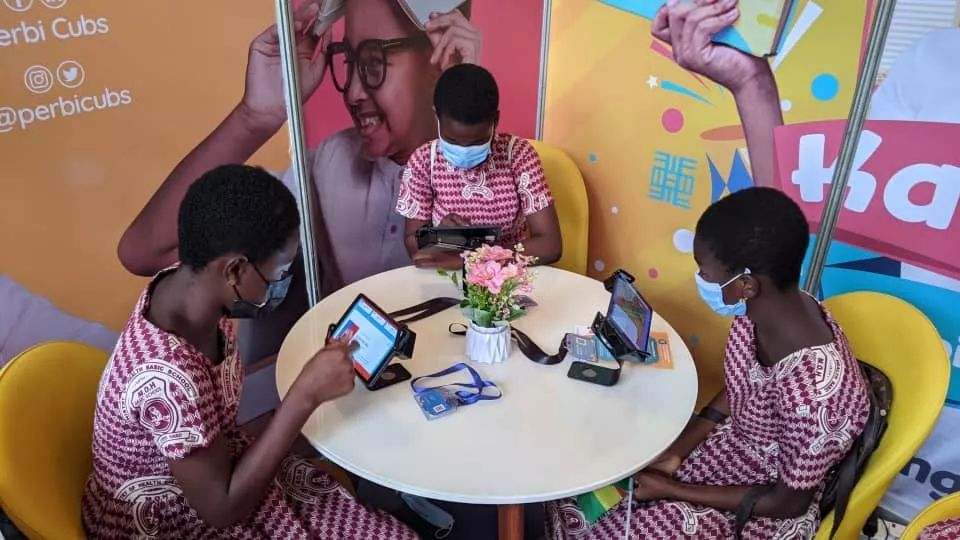
Perbi Cubs has served about 10,000 children so far and is set to scale that in this AWBC year to 100,000
WE HAVE A PROBLEM
Kanéval is fun about something serious. And Ghana in particular has a problem that isn’t funny. As a society we do not value reading enough. If research has proven that the love for reading is a stronger indicator of a child’s success in school and prosperity in life than even their parents’ socioeconomic status or level of education, then we should be worried that only 6% of Ghanaian children at classes two and three can read and understand what they read (UNESCO 2021). Meanwhile the World Book Capital Network (WBCN) acknowledges and reminds us of the power of books and reading as cornerstones to more inclusive, peaceful and sustainable societies. Thus as they rightly put it at Perbi Cubs, “Success is just a book away,” be it personal or national.
Let this be the year we all got dead serious about raising the tide (the general level of literacy) that lifts all the other boats, all sectors and subjects, including STEM. O that the confluence for influence between Kanéval by Perbi Cubs, influencers like those cited above and all other players in the UNESCO’s Accra World Book Capital 2023 space will do the trick. Let’s get on with this serious business, having fun along the way. Kanéval it is!

Google Pizza

This little man might never ever speak to a real human being to order his favourite pizza by the time he’s an adult.
Artificial Intelligence (AI) is exciting and scary at the same time! Here’s a satirical example (there are many variations online) about what should’ve been an ordinary exercise ordering ordinary pizza on an ordinary day.
Hello! Is this Gordon’s Pizza?
No sir, it’s Google’s Pizza.
Did I dial the wrong number?
No sir, Google bought the pizza store.
Oh, alright – then I’d like to place an order please.
Okay sir, do you want the usual?
The usual? You know what my usual is?
According to the caller ID, the last 15 times you’ve ordered a 12-slice with double-cheese, sausage, and thick crust.
Okay – that’s what I want this time too.
May I suggest that this time you order an 8-slice with ricotta, arugula, and tomato instead?
No, I hate vegetables.
But your cholesterol is not good.
How do you know?
Through the subscribers guide. We have the results of your blood tests for the last seven years.
Maybe so, but I don’t want the pizza you suggest – I already take medicine for high cholesterol.
But you haven’t taken the medicine regularly. Four months ago you purchased from Drugsale Network a box of only 30 tablets.
I bought more from another drugstore.
It’s not showing on your credit card, sir.
I paid in cash.
But according to your bank statement you did not withdraw that much cash.
I have another source of cash.
This is not showing on your last tax form, unless you got it from an undeclared income source.
Enough already! I’m sick to death of Google – Facebook – Twitter – WhatsApp and all the others!! I’m going to an island without internet, where there’s no cellphone and no one to spy on me …
I understand sir, but you’ll need to renew your passport … it expired six weeks ago!

